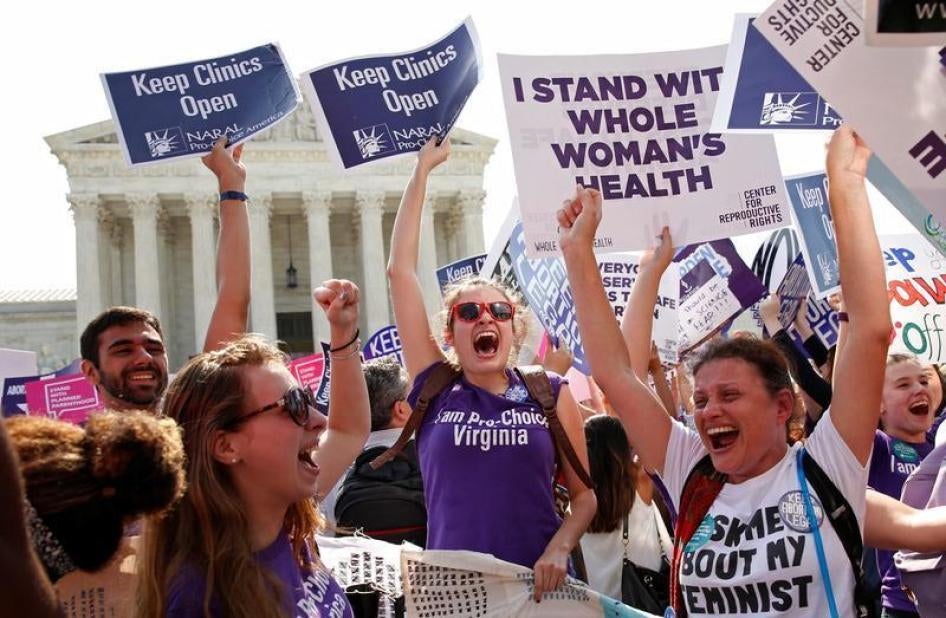The United States Supreme Court stood up for women’s health and rights today by striking down parts of a Texas law that imposes onerous restrictions on abortion providers. With the 9th seat on the court vacant since Justice Antonin Scalia’s death in February, the remaining justices ruled 5-3 that parts of the law were unconstitutional, creating an undue burden on a woman’s right to decide whether to have an abortion. The decision is a resounding defeat for abortion opponents in the US who have sought to block women’s access to the procedure with laws that regulate clinics out of business under the guise of safety.
The Texas law – HB 2 – requires abortion clinics to meet standards for ambulatory surgical centers and doctors who provide abortions to maintain admitting privileges at local hospitals. While proponents claim these measures protect women’s health, the restrictions don’t reflect reality as abortion procedures are low-risk and safer than other procedures, like colonoscopies, that are regularly performed in doctors’ offices or outpatient clinics. Instead, the law makes it prohibitively expensive and logistically unworkable for many clinics to remain open. More than half of the 42 abortion providers in Texas have closed since portions of HB 2 went into effect in 2014.
Unfortunately, Texas is not alone in passing laws that purport to protect women but actually make it harder for them to get medical care. According to the Guttmacher Institute, 26 states have laws requiring abortion providers to meet the structural requirements for surgical centers.
As of 2011, 89 percent of US counties had no abortion provider. Many women must travel long distances to reach a provider, at significant cost, especially in states with waiting periods. This makes access to abortion especially difficult for low-income women, who are disproportionately women of color. When abortion in clinics becomes too hard to access, women may seek riskier abortions, for example through unlicensed providers.
Laws like HB 2 can effectively put women’s rights out of reach and endanger women’s health. State governments that genuinely want to advance women’s safety should stop the sham and enact policies that facilitate women’s access to medical care, including abortion.









